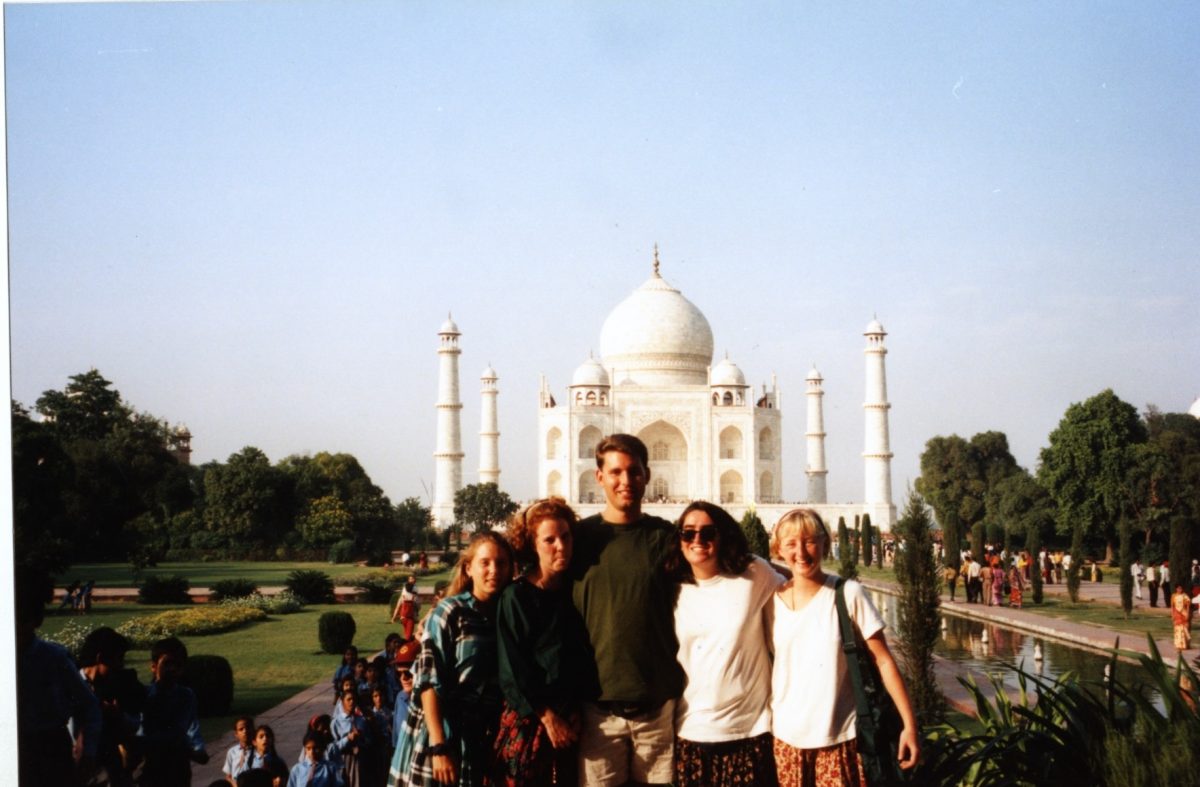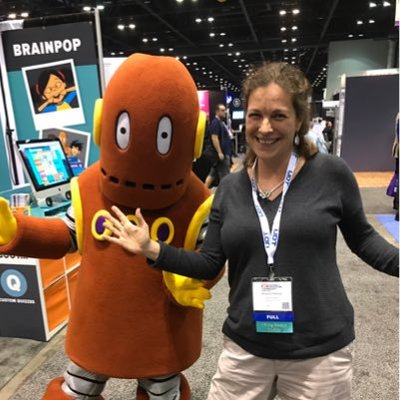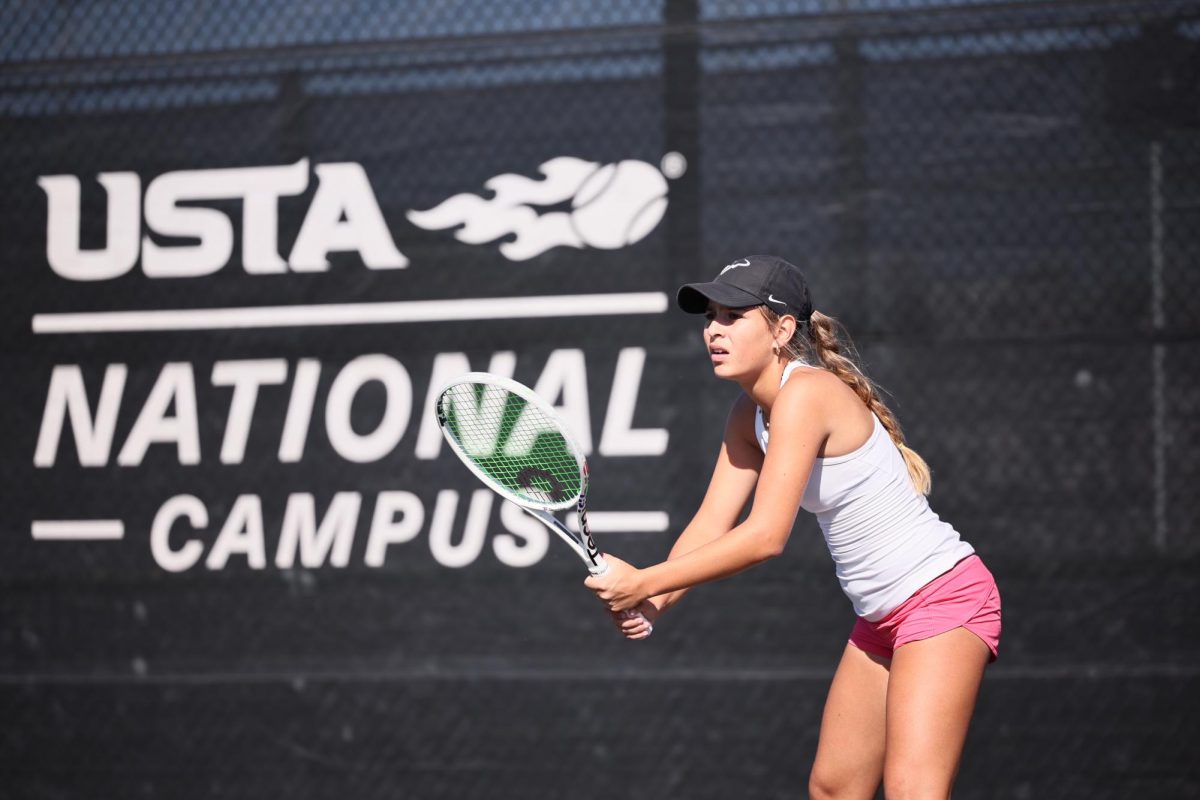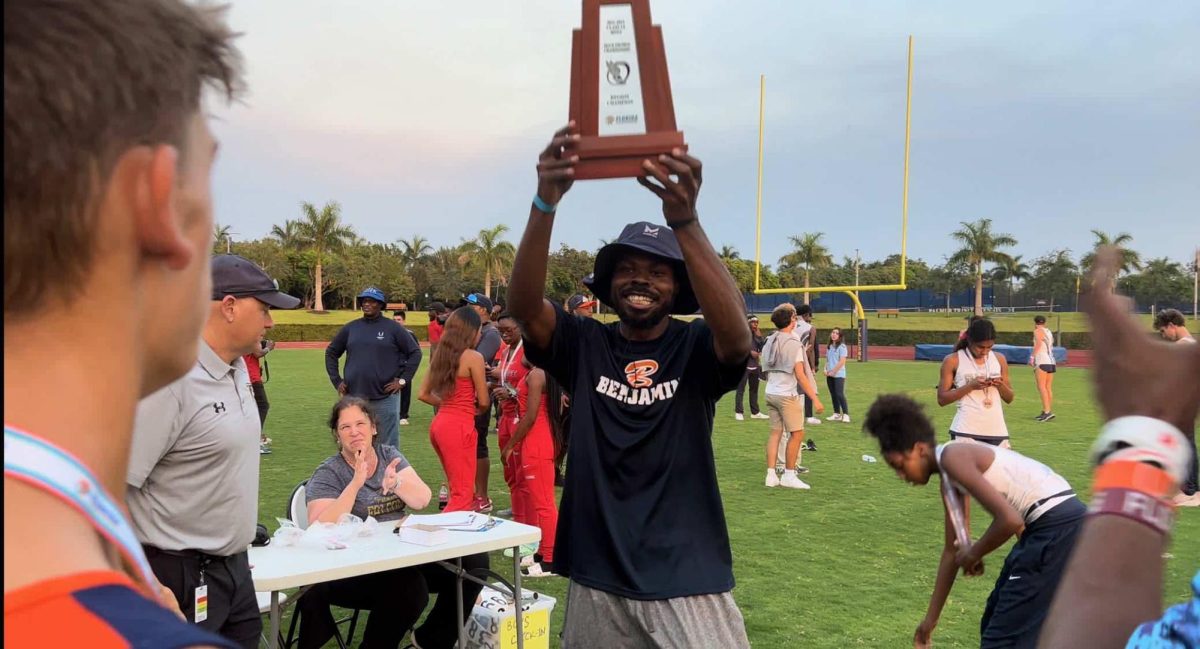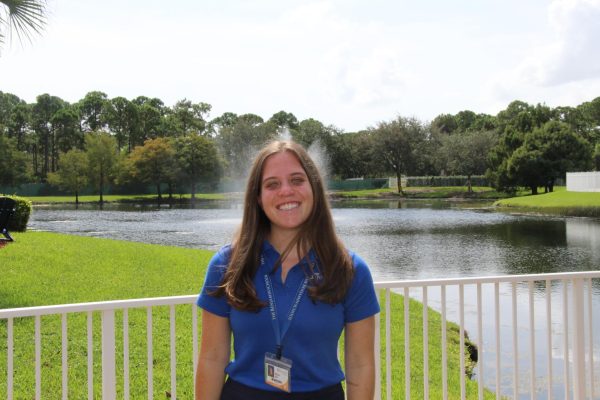It’s September of 2024. In a hospital in the Dominican Republic, anxious patients waited for doctors and new information, having traveled hours just to be seen. Many came with severe symptoms of Parkinson’s disease but with limited equipment and few treatment options, there was little the doctors could do.
But for sophomore Mili Mohanty, a volunteer at the time, the experience left a lasting mark, not because of the limitations she noticed, but because of the resilience she saw in the patients.
“I remember how grateful the patients were who had come from so far away, yet there was little we could do. I wanted to create a treatment that is effective and accessible for patients in underserved communities. Even in a tough environment that joy stuck with me. It made me realize how powerful science and compassion can be together,” Mohanty expressed.
Science had always interested her, but the hospital shifted her interest into something deeper: instead of simply enjoying the concepts from Biology or Chemistry, Mohanty was fascinated by the inner workings of Parkinson’s in individuals and more driven than ever to discover how science might be able to halt its progression.
Her older sister, Maya Mohanty, helped shape that vision even further. As someone who had competed and won at the international science fair level, modeled the discipline needed to turn a passion into something impactful.
“[Maya] has so much determination and grit and even won at the international science fair, which really motivates me. Seeing how passionate and hardworking she is pushes me to aim higher and believe in what I do,’’ Mohanty said.
With inspiration from both her personal experiences and her sister’s past accomplishments, Mohanty began to search for a project for the science fair that would let her combine her two main interests: neuroscience and machine learning. That’s when she came across ferroptosis, a lesser-known but critical process in the brain that plays a role in neuron death and is roughly in two third of Parkinson’s patients.
“I wanted to try and target something that impacted a large group of people, which is why ferroptosis stood out to me. If created correctly, my treatment would apply to around 70% of patients with the disease,” Mohanty shared.
As the first-ever student from Benjamin to enter the Palm Beach County Science fair, Mohanty needed a sponsor – and she didn’t hesitate to ask Upper School science teacher Ms. Renee Szeliga, who took on the role of coordinator for the competition.
“I was so honored to support Mili. She was so intrinsically motivated and deeply invested in her project that she made my job incredibly easy. I helped her review her materials, and offered feedback for the competition, but she was the driving force. Watching her flourish through the process was a joy,” Szeliga said.
What followed was months of research, coding, and testing. Mohanty trained a deep learning model to generate new molecules, ones that could potentially act as inhibitors of ferroptosis. Mohanty did not want to simply manage symptoms like many current treatments do, she wanted to tackle the disease at its root.
“The hardest part was definitely building and training the deep learning model. There were times when the code wouldn’t run, and I had no idea what was going wrong. I had to spend hours looking through my code to try and spot the problem,” Mohanty said.
Despite the challenges, Mohanty pushed forward. She continued to prepare her project for the competition, organizing her research onto a display board and practicing until she could explain everything from her methodology to how each molecule worked.
“I practiced my presentation over and over again and did a lot of background reading so I could confidently answer questions from the judges,” Mohanty said.
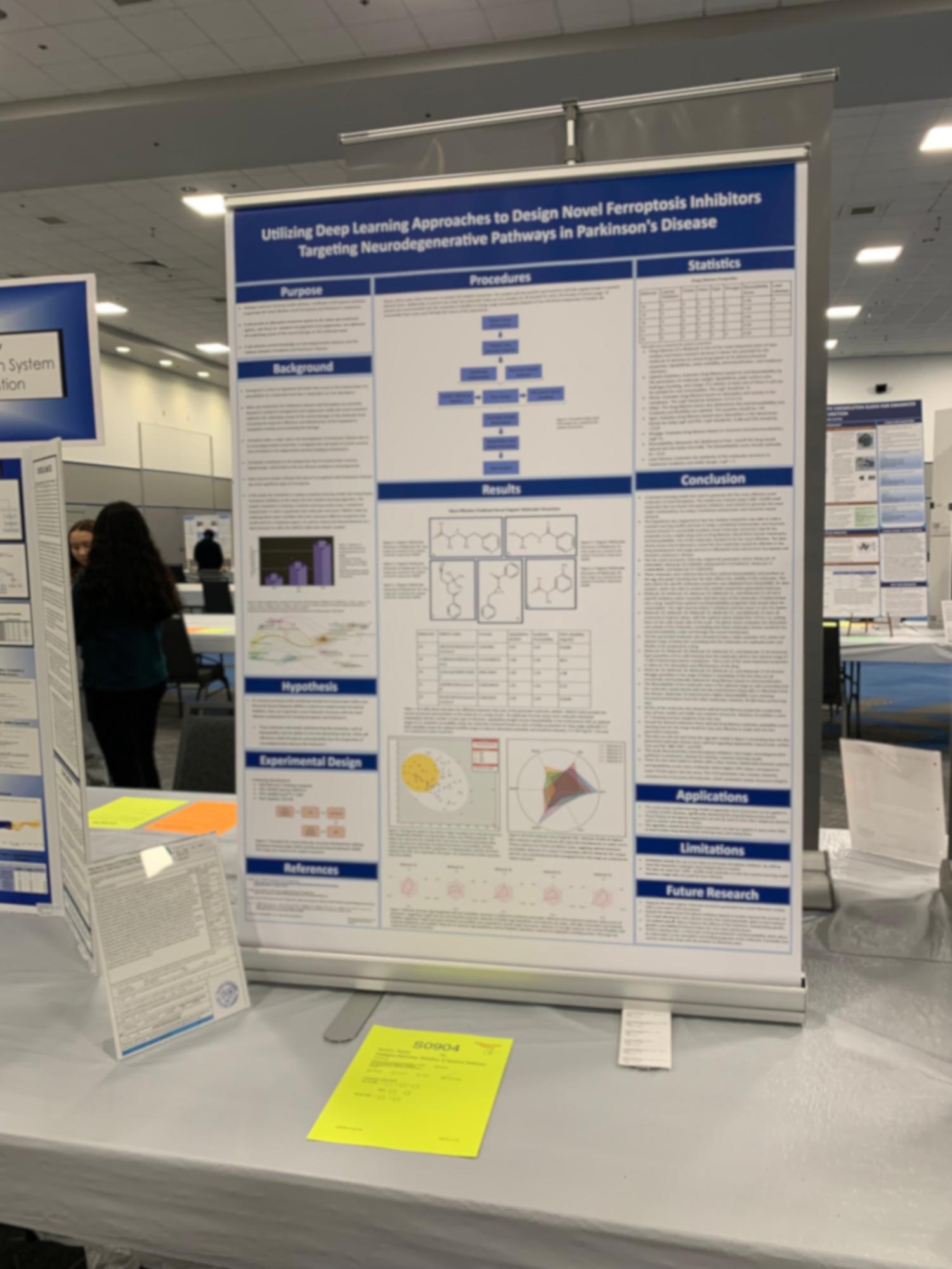
Her project, titled “Utilizing Deep Learning Approaches to Design Novel Ferroptosis Inhibitors Targeting Neurodegenerative Pathways in Parkinson’s Disease,” earned high marks from the judges. After placing second at the Palm Beach Regional Science Fair on January 7 2025, Mohanty advanced to the Florida State Science and Engineering Fair where she competed against nearly 1,000 students and placed fourth overall in the state.
“I honestly didn’t think I would place, because there were so many amazing projects. My name being called was a huge surprise but it made me feel so proud of all of the work I put in, and it just made me even more excited to keep doing research in the future,” Mohanty explained.
Though only the top three finishers advance to the international competition, Mohanty is in no way finished with her work to fight against Parkinson’s disease. She plans to return to the Florida Science Fair next year with a continuation project, one that builds on her current work and pushes her research even further. In fact, she’s currently applying for a patent, a step that speaks to the promise and potential impact of her work.
“Her success shows students that with curiosity, dedication, and courage, they can tackle ambitious and meaningful scientific questions – even in high school. I think she’s opened the door for more students to pursue original research, explore the intersection of biology and technology, and realize that their ideas can lead to real innovation. I have no doubt we’ll be seeing amazing things from her in the future,” Ms. Szeliga expressed.
As Ms. Szeliga said, this is just the beginning for Mohanty. What began in a hospital in the Dominican Republic has now transformed into real, tangible impact, and she’s just getting started.




